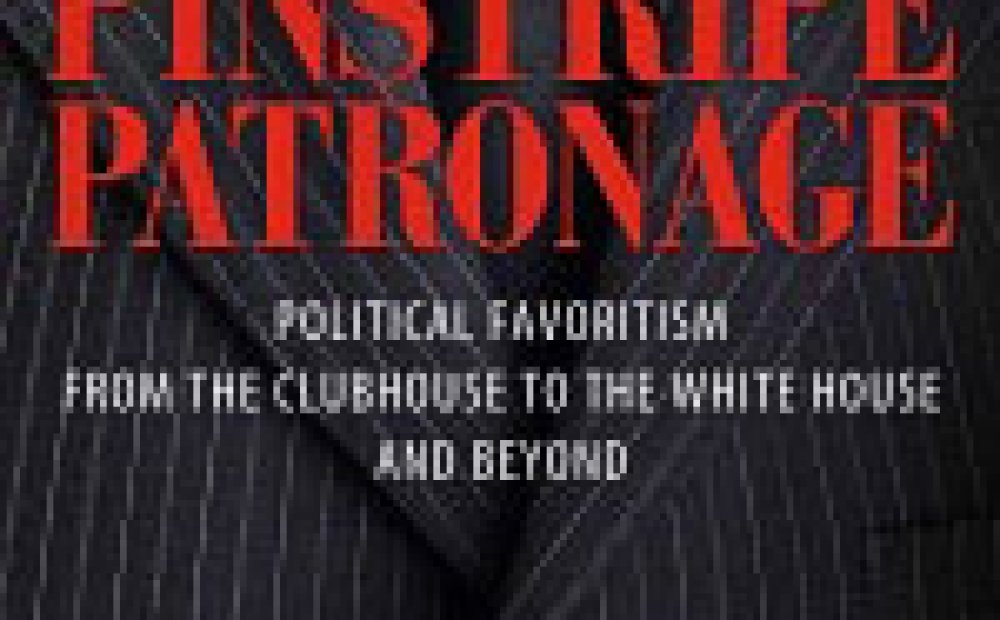Pinstripe Patronage: Political Favoritism From the Clubhouse to the White House and Beyond

On October 4, 2010, the Wilson Center on the Hill hosted authors Susan Tolchin and Martin Tolchin to discuss their recently published book Pinstripe Patronage: Political Favoritism from the Clubhouse to the White House and Beyond. David Klaus, Consulting Director of the Wilson Center on the Hill, opened and moderated the event.
The Tolchins began by asserting that patronage has always been an issue regardless of the type of government. Paraphrasing Winston Churchill, Mrs. Tolchin, a professor of public policy at George Mason University, said that "democracy is the worst form of government except all the others that have been tried." With this as a background, the Tolchins focused on the extent to which patronage has developed specifically in the American political system.
Mr. Tolchin, a senior scholar at the Wilson Center, noted that there is a long history of patronage in the United States, " it's really deeply rooted, not just in the culture of many cities, but also in the framework of the country." Mrs. Tolchin expanded on that idea and noted that the United States is the "only country in the industrialized world where there are judicial elections," which can open the door for patronage in connection with these positions as well. "Needless to say," Mr. Tolchin argued, "patronage is thriving."
"Earmarks" are a case in point. Mrs. Tolchin noted that appropriations that are directed to a congressional member's district have doubled since 1994. She argued that securing projects for one's home district is practically a requirement to winning re-election today. Adding to this point, Mr. Tolchin said that "patronage encourages people to sacrifice the public good for their private good." Noting that the earmarks are more easily understood, Mrs. Tolchin referenced the 'bridge to nowhere,', a proposed million bridge in Alaska serving less then two hundred people that gained attention during the 2008 presidential elections because it had received an earmark for $428 million. The bridge, which was widely seen as a waste of government funds, was eventually scrapped.
A more illustrative example may be that of the F-22 Raptor. The plane is by far the most technologically advanced fighter jet available today, yet due to the unconventional nature of the wars being fought in Afghanistan and Iraq, the Defense Department targeted the program for cuts. Despite its high price tag and debatable use for our modern military, Members of Congress protected the F-22 program because the plane is manufactured in over thirty states and thus has a powerful constituency in the Congress among Members whose districts would benefit by its continued production.
In addition to earmarks, Mrs. Tolchin also argued that patronage thrives when information about a particular practice is not as widely disseminated among the public as information on earmarks. A prime example of this phenomenon is favoritism in the awarding of governmental contracts. Mrs. Tolchin argued that there is little public interest in government contracting deals even though government contracts are on the rise and are more a part of the governmental process than ever before.
Both panelists argued that patronage is in many ways inevitable given our representative form of government. When asked by an audience member to comment on proposed reforms for earmarks, both panelists argued that transparency and accountability are crucial. The Tolchins both maintain that abuses of power can best be fought in the open with intelligent public discourse. Although patronage will always be an issue in the American political system, they both hoped that the book would be able to provide an important historical context.
By: Michael Darden
David Klaus, Consulting Director, Wilson Center on the Hill
Kent Hughes, Director, Program on America and the Global Economy
Speakers

Former Congressional Correspondent, New York Times; Founder, Publisher, and Editor-in-Chief, The Hill Newspaper